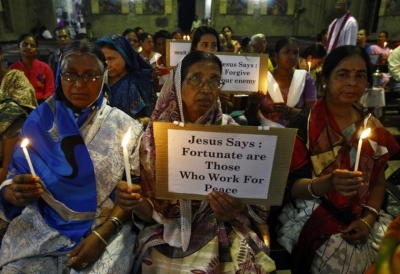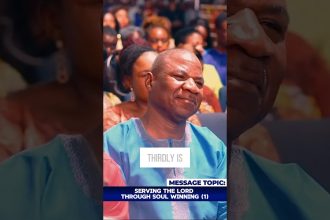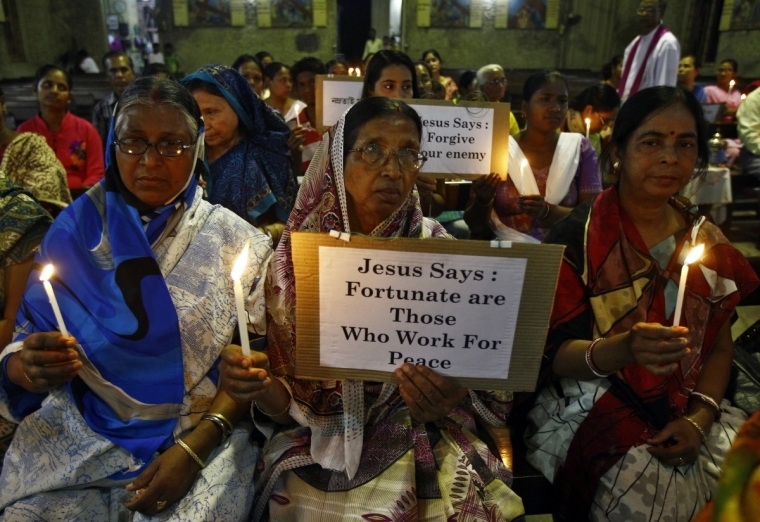
In Tortured for Christ, The Voice of the Martyrs Founder Richard Wumbrand wrote, “A man really believes not what he recites in his creed, but only the things he is ready to die for.”
Around the world, Christians in the world’s most difficult and dangerous places to follow Christ face the daily reality of persecution. Pastors are hunted and murdered. Churches are burned to the ground. Christian women and children endure brutal and unimaginable evils at the hands of their persecutors. Yet, persecuted Christians continue to love their oppressors and captors with the love of Christ, just as he commanded.
Here are 6 Christian Persecution stories — representing brothers and sisters we can pray for — worth revisiting as we finish out this year:
1. Eritrea — 20 years in prison for six pastors
Located on the Red Sea, Eritrea is governed by a totalitarian regime that seeks to control every aspect of life. Some have compared Eritrea to the “hermit kingdom” of North Korea, as it is one of the most secretive and isolated countries in the world.
Since 2002, Eritrean Evangelical churches have been required to meet secretly. The government actively seeks to infiltrate these underground churches and imprison leaders. More than 300 believers are currently in prison. None of them has even been formally charged with a crime. Six pastors marked 20 years of imprisonment in 2024.
None of the imprisoned Christians has had a trial. They are only rarely allowed any contact with families, many of whom do not know where their loved ones are imprisoned or even if they are still alive. Christians simply disappear. The conditions inside these “prisons” are known to be some of the harshest in the world.
In a special conversation on VOM Radio, I interviewed the daughter of a pastor arrested 20 years ago. She was six years old when her father was arrested, and gave an amazing, honest picture of the pain and grief her family has endured these last 20 years—but also testified to God’s faithfulness and His love for them.
2. India persecution classification
India was reclassified in 2024 as a “restricted nation” due to Prime Minister Narendra Modi’s continued governmental actions against Christians and ministries.
In February 2024, India’s government canceled the Foreign Contribution Regulation Act (FCRA) status of the Bible Society of India, the largest Bible society in the world. The FCRA regulates funding for charities and ministries and now requires any organization that receives funding from outside the country be approved by the government — which can withdraw that approval at any time.
“Anti-conversion” laws, which forbid encouraging Hindus to consider any other religion, have passed in several Indian states, and the push for a similar federal law has gained support. Despite greater government restrictions on Christianity and the arrest of numerous pastors, churches are growing.
3. Numerous attacks in the Democratic Republic of Congo (DRC)
Islamist groups in the Democratic Republic of Congo (DRC) escalated violent attacks on Christians this year.
One of the principal persecutors of Christians is the Islamist Allied Democratic Forces (ADF), which seeks to establish Islamic law in the region along DRC’s eastern border.
While this is one of Africa’s largest countries geographically, with a Christian-majority population, Christian villages have been raided, churches destroyed and hundreds of believers killed. Dozens of local Christians have been abducted by the ADF and ordered to recant their faith in Christ and convert to Islam.
Those abducted have witnessed horrific acts of violence against fellow Christians. Prior to the outbreak of violence, one church denomination had 25 churches in the Beni area; today they have eight. Another denomination had 54 churches and now has 11. Other denominations report similar patterns.
4. Colombia: Marxist influence growing
Christians in Colombia’s “red zones,” which are controlled by guerilla or paramilitary groups, take great risks to share the gospel in one of the most dangerous places for Christians on Earth.
In a recently released special report on Christian persecution in Colombia, VOM President Cole Richards said, “Neo-Marxist ideology is on the rise in Central and South America.”
Christian pastors in Colombia’s “red zones” are targeted because obedience to God’s Word prevents them from supporting or joining violent factions funded through narcotics and other criminal activities. Worship, evangelism and travel are dangerous as guerrillas seek to control all aspects of villagers’ lives.
After voters rejected a 2016 peace agreement with a rebel group, the government plowed forward, approving an agreement with insurgents without public approval. Since that 2017 agreement, various paramilitary groups in rural areas of the north and west have grown more active and violent toward Christians.
Richards said Colombia’s political leaders “have been placating the Marxist guerrillas who control Colombia’s ‘red zones’ for years now, all the while claiming that their efforts are bringing peace and unity.”
5. Numerous attacks in Burkina Faso
Burkina Faso is now considered the most violent country in the world, according to The Global Terrorism Index. Islamist extremists massacred at least 150 people — many of them Christians — in one series of attacks earlier this year. Numerous other attacks have also targeted Christians.
Terrorists targeted the town of Manni, the home to a large Catholic community, in eastern Burkina Faso on October 6, opening fire at residents, torching buildings and burning some people alive.
The terrorists reportedly returned the next day, attacking medical staff responding to the original attack and murdering many of the previously injured being treated in the hospital. Extremists then targeted the town a third consecutive day October 8, massacring all the men they could find. Many of those killed during the three days of violence were people originally from nearby villages who had sought refuge in Manni after being driven out of their homes by terrorists.
The attacks in Manni are evidence of the continuing deterioration of the security situation in Burkina Faso, where insurgents have seized control of more than half of the country’s territory, according to the U.S. Department of Defense Africa Center for Strategic Studies.
More than 2 million people in total have been displaced by the conflict, adding to an already strained economy amid political uncertainty brought on by three coups in the last two years.
6. Court forces confidential abduction report released in Malaysia
While Christianity is not illegal in this restricted nation, it is illegal for ethnic Malay people to convert to Christianity. Christian converts who are caught can be confined in “reeducation camps” that use torture and propaganda to force them to return to Islam.
One prominent pastor, Raymond Koh, was abducted in February 2017 in a precise, tactical operation that has been blamed on the Malaysian police’s Special Branch.
The motive for Koh’s “forced disappearance” centers around his strong Christian faith and allegations that he evangelized ethnic-Malay Muslims. If the abduction hadn’t been accidentally caught on a security camera, it would be as if Pastor Koh fell off the face of the earth. His car has never been found. He has never been seen or heard from since that day.
Koh’s wife filed a lawsuit against the government, pressing for answers. After years of legal efforts and public pressure, the government was ordered by a judge to release a previously-confidential report on the abduction. Since 2021, more than 82,000 people have signed a petition demanding answers in response to an awareness campaign begun by the ministry. Court hearings in Susanna’s lawsuit will continue in 2025.
Todd Nettleton is Vice President for Message at The Voice of the Martyrs and host of The Voice of the Martyrs Radio. He is the author of When Faith Is Forbidden: 40 Days on the Frontlines with Persecuted Christians.







